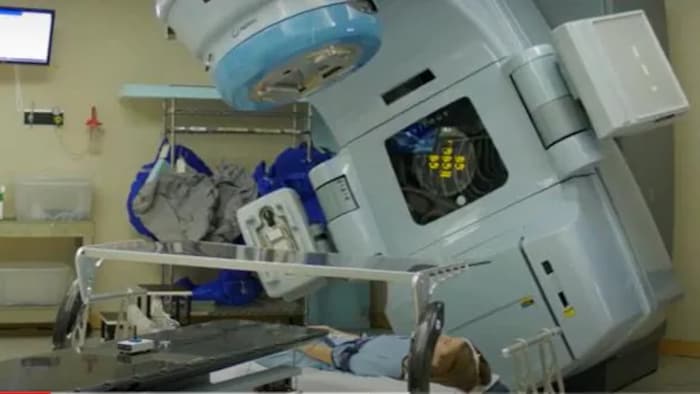Open in full screen mode Radiotherapy involves using radiation to reduce or destroy tumors and cancer cells. Medical physicists ensure that the machines operate properly. The Canadian Press Researchers at Laval University are on the trail of molecular signatures that could one day make it possible to personalize the dose of radiation administered to a cancer patient. Radiotherapy currently takes a one size fits all approach, a unique solution that is not necessarily the most effective, explained Professor Venkata Manem, who is affiliated with the Faculty of Medicine of Laval University and the Research Center of the CHU de Québec. p> In chemotherapy, in comparison, there are hundreds of compounds and we choose the right one for the right patient, he recalled. But in radiotherapy, we look at the characteristics of the patient, their age, their sex, whether they smoke and so on […], but we are not interested in the biological characteristics of the tumor.< /p> If we found, for example, that the tumor is more resistant, we could administer a higher dose of radiation to increase the chances of cure and reduce the risk of relapse , he added. On the other hand, if it were discovered that the tumor is more vulnerable, a lower dose of radiation could be used, which would minimize unwanted side effects for the patient. We are trying to both reduce the toxicity [of the treatment] for the patient and increase the chances of survival, summarized the researcher. Loading in progress ELSE ON NEWS: Quebec will move the ministerial tests another time end of year The work of Professor Manem and his team is part of the trend of precision medicine or personalized medicine, which has grown at breakneck speed in recent years, since doctors have found that it is by taking into account the particular genetic characteristics of the patient and their tumor that they can develop the most effective treatment. The same approach could be taken in radiotherapy, the researcher believes: with the availability of tissue-specific data, it could eventually be possible to obtain signatures for different types of cancers such as breast, prostate and of the lung, he said. Even if all tumors are different, and even if they are classified in the same group, at the same stage and with the same anatomical characteristics, the response to radiotherapy may be influenced by factors such as the mutations present, the microenvironment and the immune component. The team therefore used data from cell lines combined with approaches based on bioinformatics and ;machine learning to target a molecular indicator of sensitivity which could be subject to preclinical testing before being translated into the clinic. About half of patients will receive radiotherapy as part of their treatment, whether for palliative or curative purposes, Professor Manem said. So, when we give radiotherapy, it must be precise. Should a patient receive a higher dose? A lower dose because it's combined with chemotherapy? You need to know. The rest of the research will consist of validating these molecular signatures with patient data and developing a clinical test using methods based on machine learning. The team also wishes to identify radiosensitizing compounds likely to increase the therapeutic effectiveness of radiation. The conclusions of this new study were published in the medical journal BMC Cancer.
Quebec will move the end-of-year ministerial tests another time
Researchers are on the trail of personalization of radiotherapy

